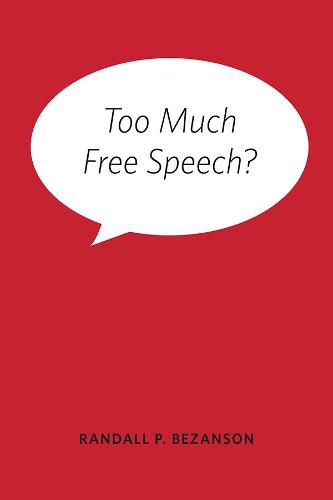Readings Newsletter
Become a Readings Member to make your shopping experience even easier.
Sign in or sign up for free!
You’re not far away from qualifying for FREE standard shipping within Australia
You’ve qualified for FREE standard shipping within Australia
The cart is loading…






Randall P. Bezanson takes up an essential and timely inquiry into the Constitutional limits of the Supreme Court’s power to create, interpret, and enforce one of the essential rights of American citizens. Analyzing contemporary Supreme Court decisions from the past fifteen years, Bezanson argues that judicial interpretations have fundamentally and drastically expanded the meaning and understanding of speech.
Bezanson focuses on judgments such as the much-discussed Citizens United case, which granted the full measure of constitutional protection to speech by corporations, and the Doe vs. Reed case in Washington state, which recognized the signing of petitions and voting in elections as acts of free speech. In each case study, he questions whether the meaning of speech has been expanded too far and critically assesses the Supreme Court’s methodology in reaching and explaining its expansive conclusions.
$9.00 standard shipping within Australia
FREE standard shipping within Australia for orders over $100.00
Express & International shipping calculated at checkout
Randall P. Bezanson takes up an essential and timely inquiry into the Constitutional limits of the Supreme Court’s power to create, interpret, and enforce one of the essential rights of American citizens. Analyzing contemporary Supreme Court decisions from the past fifteen years, Bezanson argues that judicial interpretations have fundamentally and drastically expanded the meaning and understanding of speech.
Bezanson focuses on judgments such as the much-discussed Citizens United case, which granted the full measure of constitutional protection to speech by corporations, and the Doe vs. Reed case in Washington state, which recognized the signing of petitions and voting in elections as acts of free speech. In each case study, he questions whether the meaning of speech has been expanded too far and critically assesses the Supreme Court’s methodology in reaching and explaining its expansive conclusions.